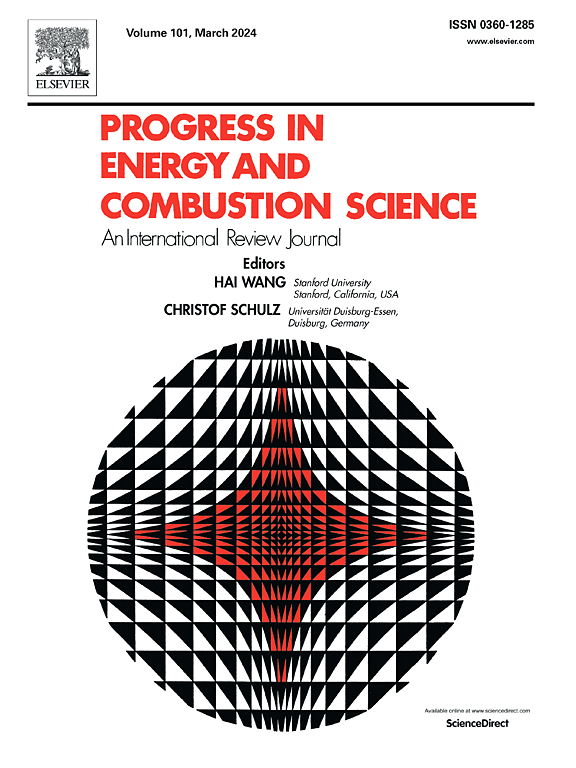加速老化试验与光伏组件的现场性能
IF 32
1区 工程技术
Q1 ENERGY & FUELS
引用次数: 2
摘要
具有光伏(PV)系统的太阳能转换市场在世界范围内经历了并正在经历巨大的增长,并且根据许多国家保护气候的商定目标,在未来几十年将进一步增长。光伏相关投资以其超长的合约期限成为一种重要的金融产品。一个典型的环境是一个超过20年的运行,在此期间,发电和收入都是预期的。有时有长达50年的电力购买协议的报道。考虑到这些较长的运行时间,质量、耐用性、可靠性和退化率成为投资和所有利益相关者的关键话题。光伏组件是这方面的主要组件,因为它们在投资中占上风,而且由于它们的绝对数量,在大多数情况下,如果系统有光伏组件内部问题,它们很难被替换。加速老化试验通常用于确保光伏组件的质量。这些测试部分标准化,主要由国际电工委员会IEC和相关国家委员会进行。这些标准用于型式认可测试或安全测试,也可以解决法律问题。加速老化试验也适用于特定需求,例如用于制造商的质量保证(QA)或制造商或研究机构的使用寿命预测(SLP)。所有的努力都是为了更多地了解光伏组件在运行中的行为,因此加速试验必须与正常运行有关。由于光伏发电在全球范围内使用,因此根据安装位置的不同,从干燥和阳光充足的沙漠到山地气候,再到热带或海洋性气候,条件差异很大。此外,安装类型对光伏组件的运行条件有严重影响,例如安装在屋顶上、屋顶集成、开放式机架上,甚至在即将到来的应用中,如浮动光伏。本文试图对光伏组件的加速测试和现场性能分析的现状进行概述,重点关注过去五到十年的发展。介绍了试验的重要性方面的发展情况,并分析了试验的现状,包括与设想的加速试验与实地性能的相关性有关的最新发展和尚未解决的科学差距。最后,读者能够区分可靠性测试和使用寿命预测。将开发包括现场评估数据在内的可靠性测试综合方法的理解。本文章由计算机程序翻译,如有差异,请以英文原文为准。
Accelerated aging tests vs field performance of PV modules
The solar conversion market with photovoltaic (PV) systems has experienced and is experiencing an enormous growth worldwide and—according to the agreed goals of many countries to protect the climate—will further grow over the coming decades. Investments related to PV became an important financial product with the special feature of very long contract durations. A typical setting is an operation of more than 20 years, during which the generation of electricity and also revenues are expected. Sometimes Power Purchase Agreements with durations of up to 50 years have been reported. Taking these long operational times into account, quality, durability, reliability, and degradation rates become a crucial topic for the investment and for all stakeholders. PV modules are the dominating components in this regard since they prevail the investment and—due to their sheer quantity—are in most cases hard to replace if a system has PV module immanent issues. Accelerated ageing tests are in general used to ensure the quality of PV components. These tests are partly standardized, for PV mainly by the International Electrotechnical Commission IEC and related national committees. These standards are used for type approval testing or safety testing, which can also address legal issues. Accelerated ageing tests are also adapted to specific needs and for example used for quality assurance (QA) of manufacturers or service life prediction (SLP) by manufacturers or research institutes. All the efforts are taken to gain more knowledge about the behavior of PV modules in operation and thus the accelerated tests have to be related to normal operation. Since PV is used around the globe, the conditions vary significantly depending on the location of installation, from dry and sunny deserts to mountain climates to tropical or maritime climates. In addition, the type of installation has severe influence on the operational conditions of PV modules i.e. mounted on a roof, roof integrated, open rack—or even in upcoming applications like floating PV. The papers attempt is to give an overview on the state of the art of accelerated testing and field performance analysis of PV modules with focus on the developments over the last five to ten years. Developments are described and the status is analyzed regarding the significance of tests including the latest developments and open scientific gaps related to the envisaged correlation of accelerated tests with field performance. In the end the reader is enabled to differentiate between reliability testing and service life prediction. The understanding for a comprehensive approach of reliability testing including field evaluation data will be developed.
求助全文
通过发布文献求助,成功后即可免费获取论文全文。
去求助
来源期刊

Progress in Energy and Combustion Science
工程技术-工程:化工
CiteScore
59.30
自引率
0.70%
发文量
44
审稿时长
3 months
期刊介绍:
Progress in Energy and Combustion Science (PECS) publishes review articles covering all aspects of energy and combustion science. These articles offer a comprehensive, in-depth overview, evaluation, and discussion of specific topics. Given the importance of climate change and energy conservation, efficient combustion of fossil fuels and the development of sustainable energy systems are emphasized. Environmental protection requires limiting pollutants, including greenhouse gases, emitted from combustion and other energy-intensive systems. Additionally, combustion plays a vital role in process technology and materials science.
PECS features articles authored by internationally recognized experts in combustion, flames, fuel science and technology, and sustainable energy solutions. Each volume includes specially commissioned review articles providing orderly and concise surveys and scientific discussions on various aspects of combustion and energy. While not overly lengthy, these articles allow authors to thoroughly and comprehensively explore their subjects. They serve as valuable resources for researchers seeking knowledge beyond their own fields and for students and engineers in government and industrial research seeking comprehensive reviews and practical solutions.
 求助内容:
求助内容: 应助结果提醒方式:
应助结果提醒方式:


